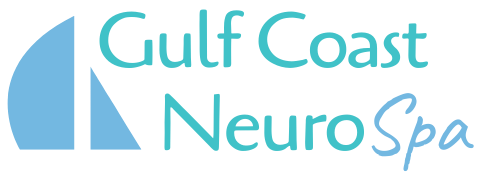Depression is a challenging and often debilitating mental health condition. For many, conventional treatments like medication and therapy can provide significant relief. However, a subset of individuals experience a more stubborn form of this illness known as Treatment-Resistant Depression (TRD). At Gulf Coast NeuroSpa, we understand the complexities of TRD and are dedicated to offering hope and advanced treatment options to those in Gulfport, Biloxi, Ocean Springs, and the entire Mississippi Gulf Coast area.
Understanding Treatment-Resistant Depression
What is Treatment-Resistant Depression?
Treatment-Resistant Depression is defined as depression that does not respond adequately to at least two different antidepressant treatments given at appropriate doses for a sufficient period. This condition affects approximately 30% of those diagnosed with major depressive disorder (MDD), making it a significant concern for both patients and healthcare providers.
Symptoms and Challenges
The symptoms of TRD are similar to those of major depression but persist despite treatment. These can include:
- Persistent sadness or a low mood
- Loss of interest or pleasure in activities once enjoyed
- Changes in appetite or weight
- Sleep disturbances (insomnia or hypersomnia)
- Fatigue or loss of energy
- Feelings of worthlessness or excessive guilt
- Difficulty concentrating or making decisions
- Recurrent thoughts of death or suicide
For individuals with TRD, these symptoms can severely impact their quality of life and daily functioning. The persistence of depression despite treatment can lead to frustration, hopelessness, and a sense of isolation.
Causes and Risk Factors
Why Does Depression Become Treatment-Resistant?
The exact reasons why depression becomes treatment-resistant are not fully understood, but several factors may contribute:
- Biological Factors: Neurotransmitter imbalances, genetic predispositions, and hormonal fluctuations can all play a role in TRD. Research indicates that abnormalities in brain structure and function may also contribute to the condition.
- Psychosocial Factors: Stressful life events, childhood trauma, and ongoing psychological stress can exacerbate depression and make it harder to treat.
- Comorbid Conditions: The presence of other mental health disorders, such as anxiety or substance abuse, can complicate treatment and reduce the effectiveness of standard interventions.
- Inadequate Treatment: Sometimes, the issue lies in the treatment itself. This can include insufficient dosage, improper duration of treatment, or lack of adherence to the prescribed regimen.
Advanced Treatment Options for TRD
When conventional treatments fail, advanced options are available. Gulf Coast NeuroSpa is at the forefront of providing innovative therapies tailored to individuals with TRD.
Transcranial Magnetic Stimulation (TMS)
TMS is a non-invasive procedure that uses magnetic fields to stimulate nerve cells in the brain, particularly those involved in mood regulation. It has shown promise in treating depression that does not respond to medications.
- How It Works: TMS targets specific areas of the brain with magnetic pulses, promoting increased activity and connectivity in regions associated with mood regulation.
- Benefits: TMS is generally well-tolerated with fewer side effects compared to medication. It is a particularly appealing option for patients who cannot tolerate antidepressants or have not seen improvement with other treatments.
Ketamine Infusion Therapy
Ketamine, traditionally used as an anesthetic, has emerged as a rapid-acting treatment for TRD. Low-dose ketamine infusions have shown effectiveness in reducing depressive symptoms quickly, often within hours.
- How It Works: Ketamine is believed to enhance synaptic connectivity and modulate glutamate, a neurotransmitter involved in mood and cognitive function.
- Benefits: Ketamine therapy can provide quick relief, which is crucial for those experiencing severe symptoms or suicidal ideation. It offers a new avenue of hope for those who have exhausted other treatment options.
Electroconvulsive Therapy (ECT)
ECT is a more established treatment option for severe TRD, particularly in cases where rapid improvement is necessary. It involves inducing controlled seizures through electrical stimulation under anesthesia.
- How It Works: ECT is thought to cause changes in brain chemistry that can quickly reverse symptoms of severe depression.
- Benefits: ECT is highly effective for many individuals with TRD, especially those who do not respond to other treatments. It is often considered when other options have been exhausted.
The Importance of Comprehensive Care
Managing TRD requires a comprehensive and personalized approach. At Gulf Coast NeuroSpa, we emphasize the importance of integrating various therapeutic modalities and supporting overall well-being.
Combining Therapies
For many individuals, a combination of treatments may offer the best chance for improvement. This can include integrating medication with advanced therapies like TMS or ketamine, alongside continued psychological support and lifestyle modifications.
Psychotherapy and Counseling
Therapy remains a cornerstone of depression treatment. Cognitive Behavioral Therapy (CBT), in particular, has been effective in helping individuals manage their symptoms and develop coping strategies. At Gulf Coast NeuroSpa, we work closely with patients to provide ongoing therapeutic support tailored to their unique needs.
Holistic and Lifestyle Interventions
Incorporating holistic approaches, such as mindfulness practices, nutritional counseling, and exercise, can also play a crucial role in managing TRD. These interventions can help enhance overall well-being and complement other treatment modalities.
Seeking Help at Gulf Coast NeuroSpa
If you or a loved one are struggling with Treatment-Resistant Depression, it’s important to know that you are not alone, and effective treatments are available. Gulf Coast NeuroSpa is dedicated to providing compassionate, cutting-edge care to the residents of Gulfport, Biloxi, Ocean Springs, and the entire Mississippi Gulf Coast area.
Our Commitment to You
At Gulf Coast NeuroSpa, we are committed to offering personalized treatment plans designed to address the unique challenges of TRD. Our team of experienced professionals is here to support you every step of the way, from initial consultation through ongoing care.
Contact Us Today
To learn more about our services and how we can help you or your loved one, please visit our website or contact us directly. Together, we can navigate the journey towards recovery and a brighter future.
References:
- Mayo Clinic. (2024). Depression (major depressive disorder).
- National Institute of Mental Health. (2024). Treatment-Resistant Depression.
- American Psychiatric Association. (2024). What is Transcranial Magnetic Stimulation (TMS)?
At Gulf Coast NeuroSpa, we believe in a future where relief from depression is within reach for everyone. If you are in Gulfport, Biloxi, Ocean Springs, or anywhere along the Mississippi Gulf Coast, we are here to help you find the path to recovery.
For more information, visit Gulf Coast NeuroSpa.
Note: This blog is intended for informational purposes only and should not be considered a substitute for professional medical advice. Always consult with a healthcare provider for diagnosis and treatment options.

